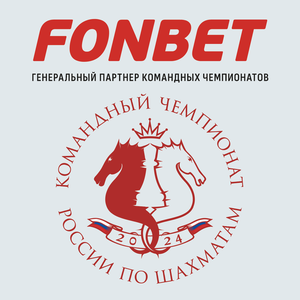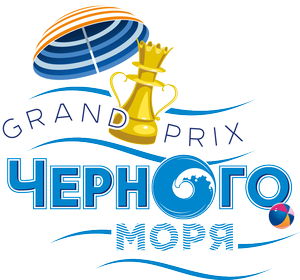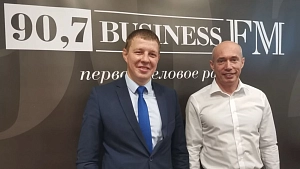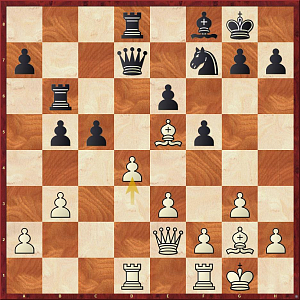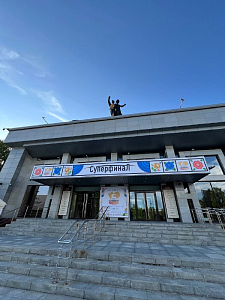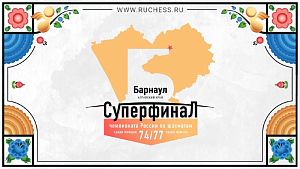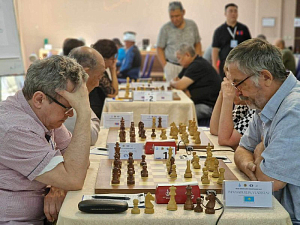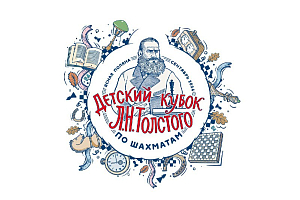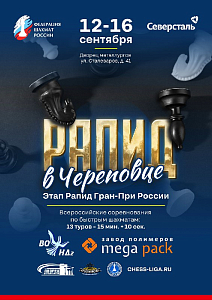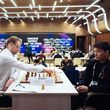9 July 2015
Vladislav Artemiev: "I was focused on qualifying"
Eteri Kublashvili interviews the winner of the Higher League.
- Vladislav, congratulations on the victory! You were probably the Higher League's youngest participant, weren't you?
- Thank you. No, the youngest player was Olexandr Triapishko from Crimea, born in 2000.
- How did the tournament go for you?
- It turned out I was in a decent form. To be honest, the tournament followed an unusual pattern: I scored almost all my wins with Black. I needed to win one game before the last two rounds, since it became clear that my tiebreakers wouldn't be so good. I went for it and beat Mikhail Kobalia, although this time with White. That win happened to be quite beautiful. And in the last round, I made sure of the necessary draw against Alexander Motylev.
- How was it playing against the senior coach of the Russian junior team, Mikhail Kobalia, under whose guidance you've won so many team tournaments?
- Frankly speaking, I didn't really want to face him at the board and was hoping to avoid it. But there was no choice (laughs). The game was quite complex, but at some point Mikhail started to make mistakes and lost.
- How did you manage to win the other games with Black? Did your opponents play too aggressively?
- It's long been the case that the percentage of points I score with Black is much higher than with White. It's harder to get a fight with White, and if you push too hard, your opponent gets chances. As a result, it was me who exploited those chances.
- In the final round you had a quick draw with Alexander Motylev, while the other contender for tournament victory, Ivan Bukavshin, kept fighting for a long time and got a position with an advantage. Did you follow his game and worry about who would get the first place?
- Yes, of course I followed Ivan's game, but I can't say I worried. It wasn't so important for me whether I take the first or the second place, since the majority of players, myself included, were focused on qualifying for the Superfinal.
- Did you like it how the tournament was organized?
- Everything was fine, as always at the Higher League. It's good that important events like the Russian Championship are held in different cities of the country.
- The Higher League was, for the first time in its history, held by the Russian Chess Federation jointly with Elena and Gennady Timchenko Charitable Foundation. What can you say about this?
- I was interested in seeing the expositions "Chess in the War Years 1941-1945" and "Our Chronicle" provided by the Timchenko Foundation.
- This year the Higher League's prize fund was increased, which means that you got a considerable amount of money. How are you going to spend it?
- First, the prizes are divided here, so I got somewhat less than you imagine. Nevertheless, I will not spend my prize at once: I am going to put a decent amount aside to buy something meaningful.
- Who helped you at the Higher League? Who do you train with on a permanent basis?
- I've been working with Pavel Maletin since this February.
- This year you've been improving steadily as a chess player – is it the result of your work with Pavel?
- I think we work quite productively, I am fine with everything.
- Tell me a little about your chess career. At what age did you start training and what are your most significant achievements by now?
- I started training since seven. My most significant achievement is probably qualifying for the World Cup at the European Championship 2014. I also won round-robin tournaments, for example, the Agzamov Memorial in Tashkent, the Margarian Memorial in Erevan, and the Students Tournament at Moscow Open. I also had some minor achievements...
- Is there any time for school left?
- In recent years, I have been paying more attention to chess, naturally. Most of my school learning is done remotely.
- Are you planning to move to Moscow and become a student of the chess department of the Russian State Social University or the Russian State University of Physical Education and Sport?
- Well, I have plans to move to a big city, but I haven't chosen between Moscow and St. Petersburg yet.
- And as for your home city Omsk, you don't consider it to be a big city?
- I do! But it's fairly difficult to get to competition venues from Omsk.
- As for Chita, however, it's easier to get there from Omsk! How are you going to prepare for the Superfinal?
- My summer schedule is always very full. I am not coming back home until July 3, and on July 10 I already leave for Martuni, Armenia, where a very serious round-robin tournament will take place with participation of young players from different countries. After I return I'll contact Pavel Maletin, and we'll start preparing for the Superfinal.
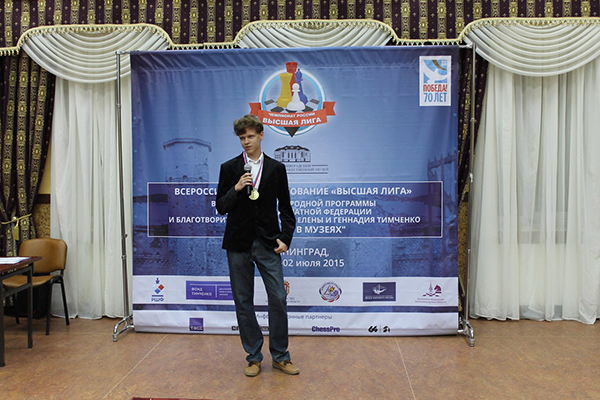
- Which of your future Superfinal opponents have you already played with?
- Only with a few: Ildar Khairullin, Alexander Motylev and Ivan Bukavshin, and with each of them the score is not in my favor (laughs).
- And you haven't played with Daniil Dubov?
- I've never faced him at the board, even though we often play at the same tournaments.
- But you've played together with Daniil for the Princes team at the Match Tournament of the Generations Shchelkunchik ("Nutcracker"), which was held by the Russian Chess Federation in Moscow in December 2014 and sponsored by the Chess Support Fund and businessman Oleg Skvortsov. What can you say about that experience?
- It was an unusual competition, I liked taking part in it, and it was interesting for me to try my hand there. I don't remember any similar match tournament of the generations. Even though five years ago it would have been even more interesting to play in it because back then our opponents, "the Kings", were at the peak of their form and among the elite.
- What advice can the winner of the Higher League Vladislav Artemiev give to beginning chess players?
- The advice is simple: play chess and love it.
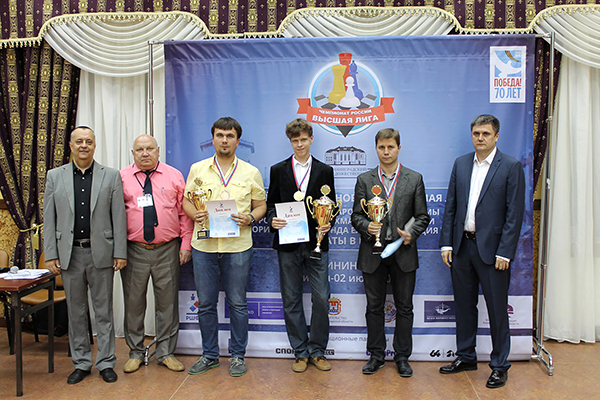
Photos by Eteri Kublashvili and Ekaterina Shermazanova








